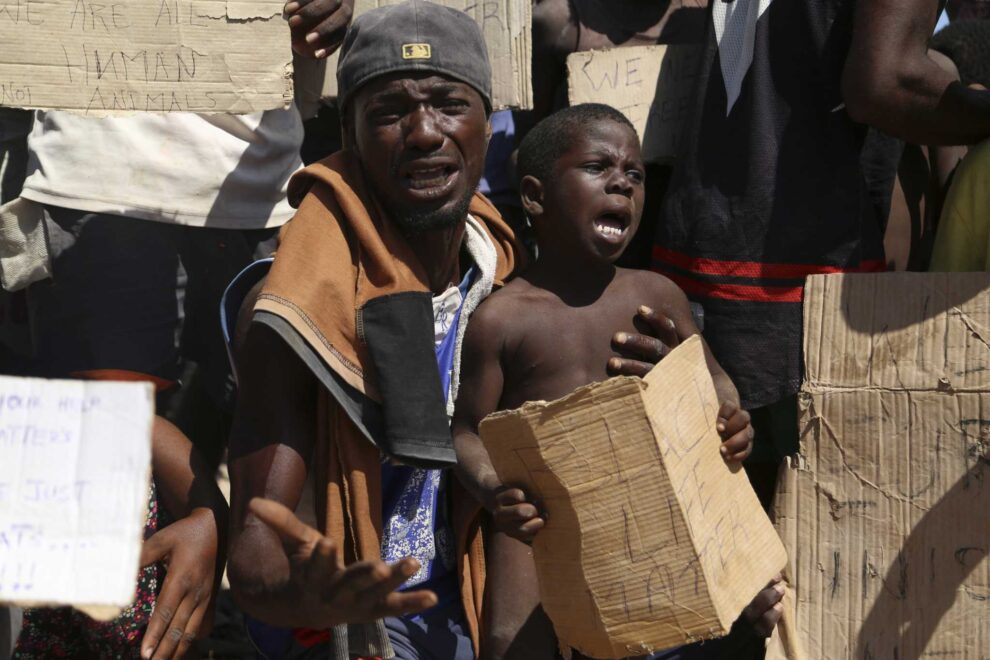Humanitarian organisations continue to criticise Tunisia for its treatment of sub-Saharan migrants, even as the country denies it is expelling the migrants to its borders with Libya and Algeria.
The international NGO Avocats Sans Frontieres (“Lawyers without Borders”) called the expulsions “illegal” on Friday.
“These expulsions are very clearly illegal,” the group told Al Jazeera. “Migrants should not be sent back to situations of destitution or inhospitable conditions in which their safety or their human rights would be threatened, for example in cases of expulsions to the “no man’s lands” between borders.”
But on Thursday, Tunisian Interior Minister Kamel Fekih disputed comments made by United Nations deputy spokesperson Farhan Haq on Tuesday, when the latter said that the UN was “deeply concerned” about the expulsions.
The UN also demanded that refugees and migrants stranded in the desert be relocated.
“What was published by certain international organisations, and especially the statement by the UN spokesperson, is characterised by inaccuracy and even untruths,” the TAP news agency quoted Fekih as saying.
“The allegations about expulsion operations are unfounded,” Fekih said.
Humanitarian sources in Libya’s capital of Tripoli said on Thursday that 24 bodies, including women and children, have been recovered from the Libyan desert since the beginning of July.
But Fekih called for “verification of the authenticity of the information before publication, given the negative repercussions” for its security forces who he said “spare no effort when it comes to rescuing and saving migrants on land and at sea”.
Fekih said that 15,327 migrants had been rescued between January and July, and that migrants are treated “in accordance with Tunisian law and international treaties”.
Tensions between Tunisians and refugees and migrants in the country have soared since February, when President Kais Saied made a speech in which he said the migration of Black sub-Saharan Africans threatened the country’s demographic makeup.
Hundreds have since been forced from their homes in the coastal city of Sfax, where clashes erupted earlier this month.
Authorities in recent weeks have rounded up refugees and asylum seekers living rough in Tunisian cities onto buses and left them stranded in remote desert areas near Algeria and Libya, leading to a sharp backlash from human rights organisations and an increasing focus on Tunisia’s treatment of refugees.
Source : Al Jazeera
















